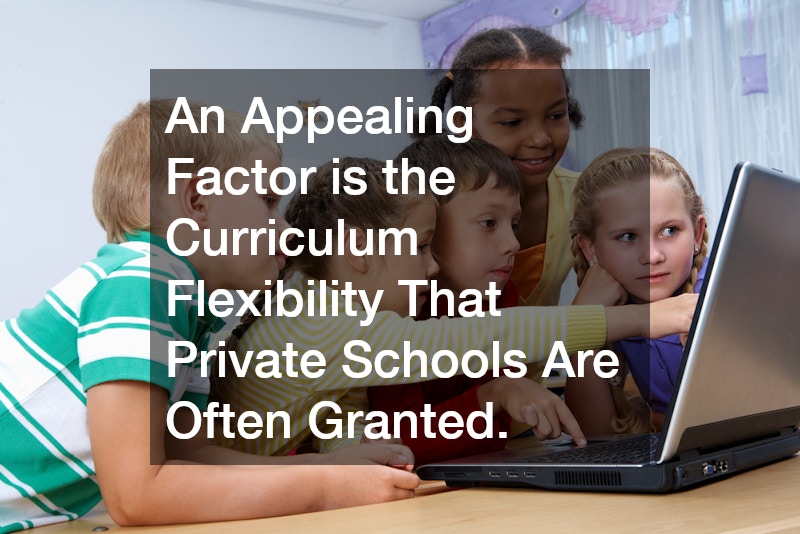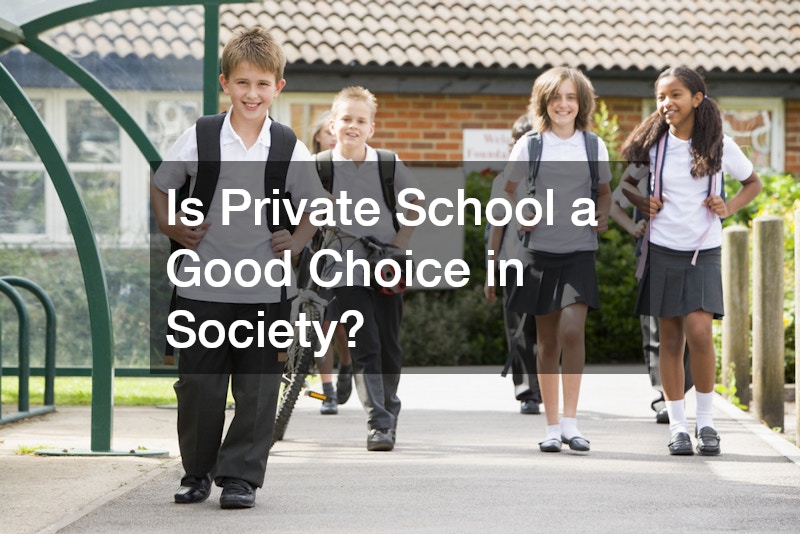Private schools have long been regarded as prestigious institutions that offer a high-quality education. Many parents are drawn to private schools due to their smaller class sizes and personalized attention to each student.
Additionally, private schools often boast impressive facilities and resources, which can enhance the learning experience. Parents also believe that private schools can offer specialized programs, catering to the specific talents or interests of students. This specialized approach can be particularly appealing for families looking for an education tailored to their child’s needs.
Moreover, the reputation of a private school can carry significant weight in a student’s future academic and career opportunities. Graduating from a well-known private institution can be a mark of distinction, especially in competitive college admissions processes. Alumni networks from these schools often provide valuable connections and opportunities in various professional fields. However, it’s important to note that the name alone doesn’t guarantee success; it must be paired with a drive and commitment from the student. Nevertheless, for many, the potential benefits outweigh the high costs associated with private schooling.
Another appealing factor is the curriculum flexibility that private schools are often granted. Unlike public schools, which must adhere to state-mandated educational standards, private schools can design their own curricula. This allows for innovative teaching methods and the inclusion of unique subjects and extracurricular activities. As a result, students might enjoy a more diverse and enriched educational experience. Consequently, this flexibility can be a deciding factor for parents considering a private education for their children.
Challenges Faced by Private Schools
Despite their advantages, private schools are not without challenges. One significant issue is the financial barrier; tuition fees can be prohibitively expensive, making it an option available only to families with adequate financial means. This exclusionary nature raises questions about equity and access to quality education. Additionally, while scholarships are available, they are often limited and highly competitive, meaning not all talented students can benefit. Thus, the high costs of private schools can reinforce socioeconomic divides in society.
Another challenge is the pressure to maintain high academic and extracurricular standards. Students at private schools often face intense competition and expectations from both peers and parents. This can result in a highly competitive atmosphere that can contribute to stress and anxiety among students. Such an environment might not be conducive to the well-being of all students, potentially impeding their overall development. Schools must balance maintaining rigorous standards while ensuring a supportive environment for each student.
Finally, private schools face scrutiny over their ability to provide an inclusive environment. With the demographic of students often being less diverse than in public schools, there is a risk of limited exposure to different cultures and perspectives. This lack of diversity can impact a student’s social development and understanding of broader societal issues. Schools must therefore make concerted efforts to promote inclusion and diversity within their student body and curricula. Embracing diversity can enrich the educational experience and better prepare students for the globalized world.
The Role of Private Schools in Modern Education
Private schools play a significant role in the educational landscape by offering an alternative to the public school system. They often set benchmarks for educational excellence due to their ability to innovate and personalize learning. By doing so, they can serve as incubators for new teaching methods and curricular developments. These innovations can eventually influence public schools, driving improvements in the broader education system. Therefore, private schools contribute to the evolution and diversification of educational practices.
In addition to educational innovations, private schools often prioritize values-based education. Many private institutions are affiliated with specific religious or philosophical ideologies, integrating their principles into daily school life. This focus can impart a strong moral framework and sense of community among students, which some parents view as crucial for developing character. However, it’s vital that these values align with those of the student’s family to avoid conflicts. Ultimately, the integration of values can be a compelling reason for choosing a private school.
Private schools also provide a significant share of educational research and discourse through various platforms and collaborations. Their independence allows them to engage in research initiatives that might not be feasible within public school constraints. Such contributions enhance educational literature and provide insights that benefit the entire educational community. As thought leaders, private schools can drive discussions around educational policy and practice. Thus, their presence adds valuable depth to educational innovation and advancement.
Is Private School the Right Choice?
The decision to enroll a child in private school involves weighing the benefits against the potential drawbacks. For families seeking a tailored educational experience with access to extensive resources and connections, private schools can be an excellent choice. However, they must consider the financial implications and the school’s alignment with their values. In doing so, they ensure that the investment aligns with their expectations and aspirations for their child’s education. The ultimate decision should reflect the individual needs and circumstances of each family.
While private schools offer a range of advantages, they also present challenges that require careful consideration. It is essential to evaluate whether the environment of a private school is conducive to the student’s well-being and personal growth. Families should thoroughly research and visit potential schools to gain a comprehensive understanding of their offerings and ethos. This due diligence can help ensure that the environment and opportunities align with the student’s and family’s goals. Only through thorough evaluation can families make an informed choice.
Ultimately, the choice between private and public schooling is highly personal and depends on various factors, including educational priorities and financial capability. The decision should be driven by what will best support the child’s education, growth, and happiness. In doing so, families contribute to shaping a child’s future while considering their unique needs. Thus, whether a private school is a good choice in society depends significantly on individual circumstances. As education remains a cornerstone of personal and societal development, making the right choice is imperative.


